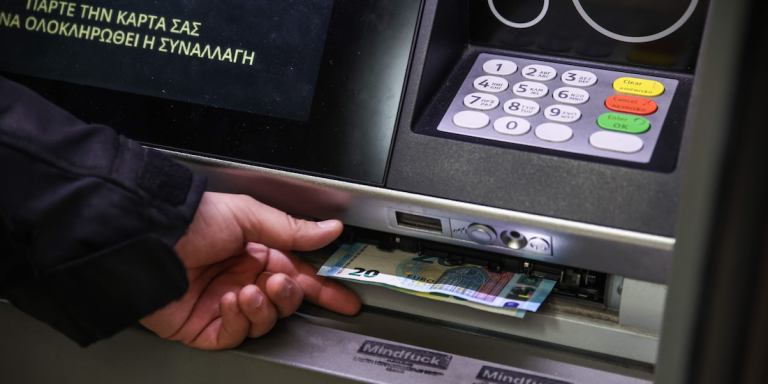
New consumer protection measures slash transaction costs nationwide, providing significant financial relief to citizens

Athens – Greece has implemented sweeping banking reforms that eliminate ATM withdrawal fees and significantly reduce other transaction costs, marking what officials describe as a turning point in the nation’s banking sector pricing policies for private customers.
The latest phase of reforms, which took full effect on August 11, 2025, abolishes fees for cash withdrawals from any Greek bank ATM and caps charges at €1.50 for third-party ATMs. This represents the second wave of changes following initial measures introduced in January 2025 that targeted digital banking transactions.

Comprehensive Fee Structure Overhaul
The reforms affect a broad set of transactions for individuals — including employees, pensioners, the unemployed, and the self-employed — with either no fees or significantly lower costs. The Greek Ministry of Finance designed these measures to provide direct financial relief to consumers across all demographic groups.
For ATM withdrawals specifically, customers previously faced costs between €2.30 and €2.75 when withdrawing cash from another bank’s ATM, combining the ATM operator’s fee and the customer’s own bank fee. Under the new regulations, Greek bank cardholders pay nothing for withdrawals from any domestic bank ATM, regardless of which institution issued their card.
Withdrawals from third-party ATMs (such as Euronet) are capped at €1.50, while cardholders of Piraeus Bank pay no fee at Cashflex ATMs. Additionally, in areas with only one ATM—whether bank-operated or third-party—withdrawals remain free for Greek bank cardholders.
Digital Transaction Benefits

The January reforms established substantial savings for digital banking customers.
Money transfers of up to €5,000 between accounts in different Greek banks are now capped at €0.50 for outgoing transfers and €0.50 for incoming transfers, reducing the total maximum cost to €1.
The IRIS payment system, which enables instant transfers using mobile banking without requiring an IBAN, offers even greater convenience.
The system allows transfers between individuals or to self-employed professionals using only the recipient’s phone number or tax ID, with no fee for transfers between individuals.
Utility and Service Payment Reforms
Consumer advocacy groups have particularly praised the elimination of utility payment fees. From January 2025, no fees are charged for bill payments to utilities, public bodies, social security funds, or insurance companies if made via online banking, mobile banking, or standing orders. This change addresses a major source of consumer frustration, as many customers previously paid multiple fees monthly for essential service payments.
The reforms also modernize prepaid card services. Banks cannot charge for loading up to €100 per day onto prepaid cards, with a 1% fee applying above this amount, subject to a €1 minimum.

Banking Industry Adaptation
While the changes have reduced non-interest income for banks in the first half of the year, they have translated into direct savings for consumers. Major banks have responded by restructuring their subscription packages to reflect the new regulatory environment.
Alpha Bank offers its myAlpha Benefit package from €0.80 monthly, providing free transfers and bill payments beyond those mandated by law. Eurobank’s My Advantage Banking starts at €0.60 monthly, offering free debit card services and unlimited standing order bill payments. The National Bank of Greece provides its Privilege Account at €0.80 monthly for up to 50 free transfers and unlimited bill payments.
European Context and Consumer Impact
The reforms place Greece among Europe’s most consumer-friendly banking systems, addressing long-standing consumer complaints about excessive transaction costs.
For households with limited income, previous ATM fees represented far from trivial expenses, with annual costs potentially reaching €156 for frequent users of third-party ATMs.

The European Union’s Payment Services Directive has encouraged member states to enhance consumer protection in banking services, and Greece’s comprehensive approach exceeds many E.U. requirements.
Banking industry analysts note that while traditional fee income has declined, banks may benefit from increased transaction volumes and customer satisfaction.
Consumer rights organizations have welcomed the changes as addressing fundamental fairness concerns in banking access.
The reforms ensure that basic banking services—particularly ATM access—do not create additional financial burdens for citizens managing everyday transactions.
The Greek government estimates that the combined reforms will save consumers millions of euros annually in transaction costs, with the most significant impact felt by frequent ATM users and those who regularly make digital transfers between banks.
Officials describe the measures as part of broader efforts to modernize Greece’s financial services sector while prioritizing consumer protection.
Summary
Greece’s comprehensive banking reform eliminates ATM withdrawal fees from all domestic bank machines while capping third-party ATM charges at €1.50. The reforms, effective August 11, 2025, follow earlier January measures that reduced fees for digital transactions, bill payments, and money transfers. Banks’ non-interest income has declined, but consumers gain direct savings. The changes position Greece among Europe’s most consumer-friendly banking systems, addressing long-standing concerns about excessive transaction costs.